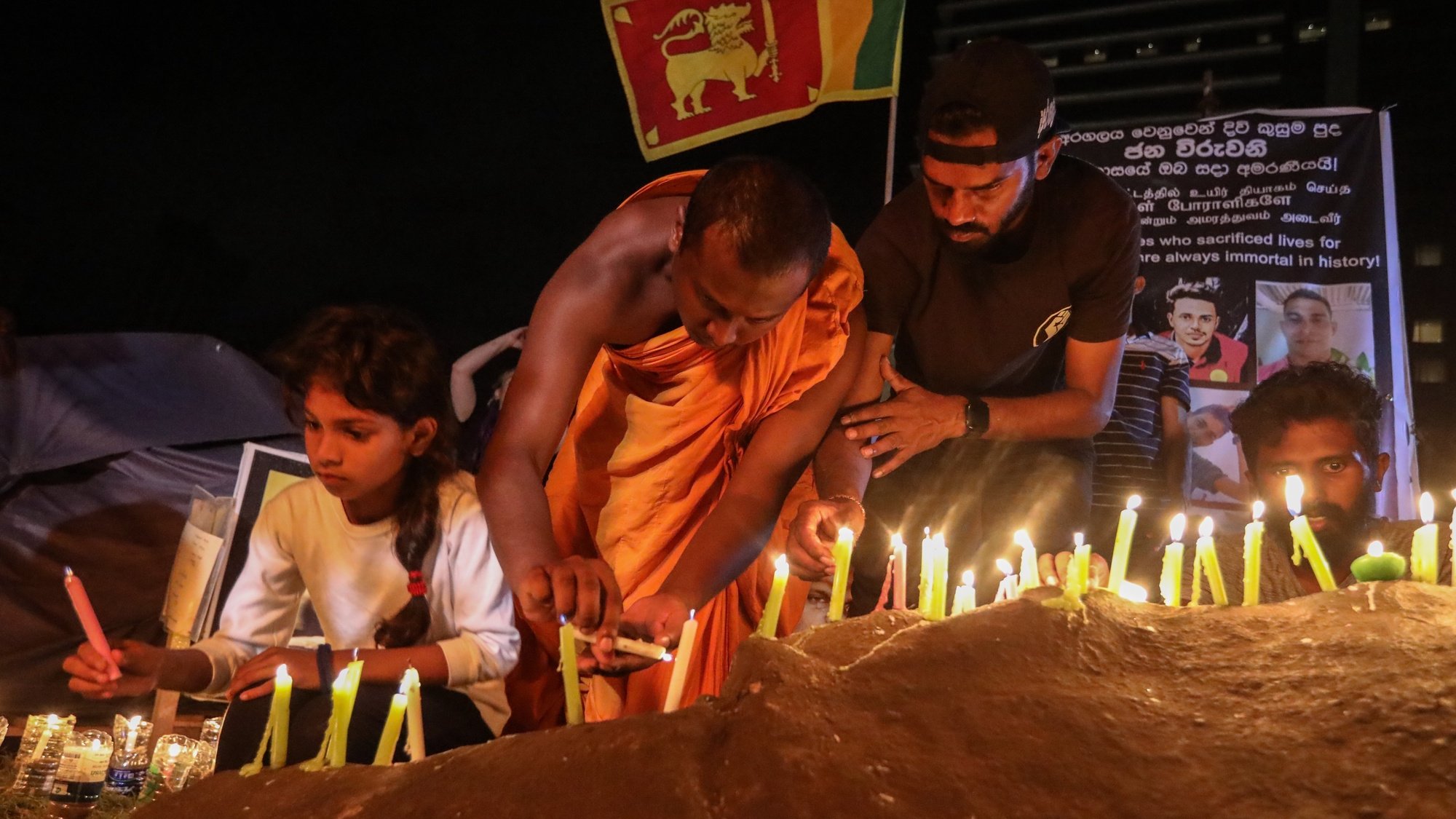Sri Lanka’s interim president declared a state of emergency on Monday, giving him broad authority to quell further protests demanding his resignation, two days before the country’s parliament nominates a new president.
Ranil Wickremesinghe became interim president on Friday following the announcement of the resignation of former head of state Gotabaya Rajapaksa, who fled to the Maldives and then Singapore.
The imposition of the state of emergency comes at a time when the protests continue, which have lasted for more than 100 days, and which now also demand the resignation of Wickremesinghe.
Protesters today celebrate 100 days since the start of the protests in Sri Lanka
The emergency decree allows Wickremesinghe to implement rules for the maintenance of security and public orderto quell unrest and secure the supply of essential goods.
The decree empowers the internal president to authorize arrests, property seizures and home searches, as well as the modification or suspension of any existing law.
Sri Lanka’s parliament met on Saturday to begin the process of electing a new leader to serve Rajapaksa’s term.
The candidates will be heard on Tuesday and, if there is more than one candidate, the deputies will vote on Wednesday.
The current political crisis in Sri Lanka is due to the The worst economic crisis in the country since independence from the British Empire in 1948.
The political opposition and protesters accuse Rajapaksa of embezzling public funds for decades and blame the measures imposed by the head of state for causing the country’s economic collapse.
The president’s family denied the corruption allegations, but Rajapaksa acknowledged that some of the policies contributed to the crisis facing the country.
The political stalemate further threatens Sri Lanka’s economic and financial situation, as the the lack of a governmental alternative could further delay the intervention of the International Monetary Fund (IMF).
the country already flaw and it has an external debt of more than 50,000 million euros, which analysts have already considered “unpayable”.
Meanwhile, the country has economic aid from India and the People’s Republic of China.
The shortage of basic necessities has worsened the situation of the country’s population of 22 million inhabitants.
Source: Observadora
